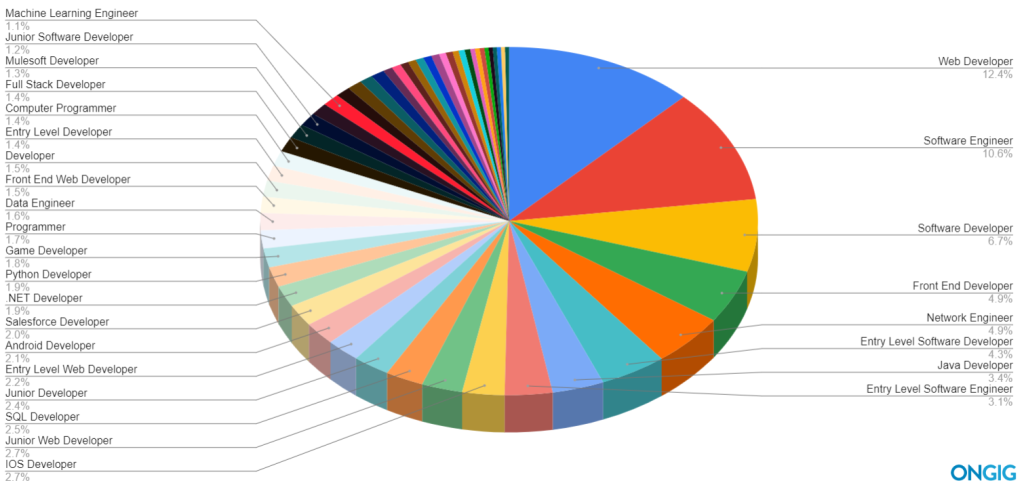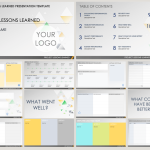Unlock Your Potential With Entry Level Software Development Jobs: Click To Jumpstart Your Career!
Software Development Jobs Entry Level: A Comprehensive Guide
Introduction
Dear Readers,
2 Picture Gallery: Unlock Your Potential With Entry Level Software Development Jobs: Click To Jumpstart Your Career!


Welcome to our comprehensive guide on software development jobs entry level. In today’s digital era, the demand for skilled software developers continues to grow. If you are considering a career in software development or are already an aspiring developer looking for entry-level opportunities, this article is for you. Here, we will explore everything you need to know about software development jobs at the entry level, including the skills required, job prospects, and how to kick-start your career in this exciting field. So, let’s dive in!
What are Software Development Jobs at the Entry Level?

Image Source: cloudfront.net
🔍 Software development jobs at the entry level refer to positions that are suitable for individuals who have recently graduated or have minimal professional experience in the field. These roles are designed to provide newcomers with an opportunity to gain practical experience, learn from seasoned professionals, and enhance their skills.
In the software development industry, entry-level positions can vary, including software engineer, web developer, mobile app developer, and quality assurance tester, to name a few. These roles often involve working on projects under the guidance of senior developers or team leads.
Skills Required for Entry Level Software Development Jobs
🚀 To succeed in a software development job at the entry level, certain skills are essential. Here are some key skills that employers often look for:

Image Source: ongig.com
1. Proficiency in programming languages such as Java, Python, C++, or JavaScript.
2. Strong problem-solving and analytical skills to identify and resolve software bugs and issues.
3. Familiarity with software development methodologies, such as Agile or Scrum.
4. Knowledge of web development frameworks like React, Angular, or Django.
5. Understanding of databases and SQL for data storage and retrieval.
6. Excellent teamwork and communication skills to collaborate effectively with colleagues and stakeholders.
7. Continuous learning mindset to keep up with the ever-evolving technology landscape.
Who Should Consider Entry Level Software Development Jobs?
🎯 Entry-level software development jobs are ideal for individuals who have recently completed their education in computer science, software engineering, or a related field. These positions also suit career changers who have acquired programming skills through bootcamps, online courses, or self-study. If you possess a passion for coding, problem-solving, and a strong desire to build innovative solutions, a career in software development could be the right fit for you.
When to Pursue a Career in Entry Level Software Development?
⏰ The best time to pursue a career in entry-level software development is now! The demand for software developers continues to rise, and companies across industries are constantly seeking fresh talent to join their teams. By starting your career in software development at the entry level, you can build a strong foundation of skills and experience that will propel you towards more senior roles in the future. Don’t wait any longer – kick-start your journey in this exciting field today!
Where to Find Entry Level Software Development Jobs?
🌍 Entry-level software development jobs can be found in various sectors, including technology companies, startups, financial institutions, healthcare organizations, and government agencies. Some popular platforms to explore for job opportunities in this field include job search websites, professional networking platforms like LinkedIn, and specialized software development job boards. It’s also beneficial to attend career fairs, industry events, and connect with local developer communities to expand your network and increase your chances of finding the right job.
Why Choose a Career in Entry Level Software Development?
❓ Choosing a career in entry-level software development offers numerous advantages and opportunities. Here are a few reasons why you should consider this path:
1. High demand: The demand for software developers is projected to increase significantly in the coming years. This means more job opportunities and a higher chance of finding employment.
2. Competitive salaries: Software developers often enjoy attractive salary packages and benefits due to the demand-supply gap in the industry.
3. Continuous learning: Software development is a field that requires constant learning and staying up-to-date with the latest technologies, making it intellectually stimulating and satisfying for those who love to learn.
4. Career growth: Starting at the entry level allows you to build a solid foundation of skills and experience, opening doors to exciting career advancement opportunities in the future.
Despite its numerous advantages, it’s important to consider the potential challenges of a career in software development. Let’s explore the pros and cons further.
Advantages and Disadvantages of Entry Level Software Development Jobs
👍 Like any career path, entry-level software development jobs come with their own set of advantages and disadvantages. Let’s take a closer look at both sides of the coin:
Advantages:
1. Fast-growing industry: The software development industry is rapidly expanding, offering a wide range of job opportunities and career growth potential.
2. High earning potential: Software developers often enjoy competitive salaries and benefits, especially as they gain experience and expertise in their field.
3. Creativity and problem-solving: Software development allows you to unleash your creativity and solve complex problems through innovative solutions.
4. Flexibility and remote work options: Many software development jobs offer the flexibility to work remotely or have flexible working hours, providing a better work-life balance.
Disadvantages:
1. Long hours and tight deadlines: Software development projects often come with tight deadlines, and working long hours to meet them can be demanding.
2. Continuous learning: While it can be an advantage, the need to constantly learn new technologies and update your skills can also be challenging and time-consuming.
3. High competition: The demand for software developers has led to increased competition in the job market, making it important to stand out from the crowd.
4. Pressure and responsibility: As a software developer, you may be responsible for critical tasks and deliverables, which can add pressure and stress to your work.
Frequently Asked Questions (FAQs)
1. What qualifications do I need for entry level software development jobs?
🔑 While specific qualifications may vary depending on the company and position, a bachelor’s degree in computer science, software engineering, or a related field is typically preferred. However, some employers may consider candidates with relevant certifications or practical experience gained through bootcamps or self-study.
2. How can I gain practical experience for entry level software development jobs?
💼 Gaining practical experience can be done through internships, freelance projects, or open source contributions. These opportunities allow you to apply your skills in real-world scenarios, enhance your portfolio, and make valuable connections in the industry.
3. What programming languages should I learn for entry level software development jobs?
💻 The choice of programming languages may depend on the specific job requirements and industry trends. However, some popular languages to consider learning include Java, Python, C++, JavaScript, and Ruby.
4. How can I stand out in the competitive job market for software development?
🌟 To stand out in the competitive job market, focus on building a strong portfolio showcasing your projects and contributions. Participate in open source projects, attend hackathons, and continuously update your skills to demonstrate your commitment to growth and learning.
5. What is the career growth potential in entry level software development?
📈 Starting at the entry level provides a solid foundation for career growth in software development. With experience and continuous learning, you can progress to more senior roles such as software architect, technical lead, or project manager.
Conclusion
🏁 In conclusion, entering the world of software development at the entry level is an excellent choice for aspiring developers. With the right skills, determination, and continuous learning, you can embark on a rewarding career with ample job opportunities and growth potential. Remember to stay updated with the latest industry trends, build a strong professional network, and always showcase your passion and dedication. So, what are you waiting for? Start your journey in entry-level software development today and unlock a world of possibilities!
Final Remarks
💡 We hope this comprehensive guide has provided you with valuable insights into the world of software development jobs at the entry level. It’s important to note that while the information presented here is accurate and up-to-date, the software development industry is dynamic, and trends may change over time. We encourage you to stay curious, continue learning, and adapt to the evolving demands of the field. Best of luck on your software development journey!
Table: Software Development Jobs Entry Level Information
Job Title
Skills Required
Salary Range
Qualifications
Software Engineer
Programming languages, problem-solving, teamwork
$60,000 – $90,000 per year
Bachelor’s degree in computer science or related field
Web Developer
HTML, CSS, JavaScript, web frameworks
$50,000 – $80,000 per year
Relevant certifications or practical experience
Mobile App Developer
Mobile app development, Java, Swift
$70,000 – $100,000 per year
Bachelor’s degree in computer science or related field
Quality Assurance Tester
Software testing, bug tracking, attention to detail
$40,000 – $70,000 per year
Bachelor’s degree in computer science or related field
This post topic: Software Tutorials


